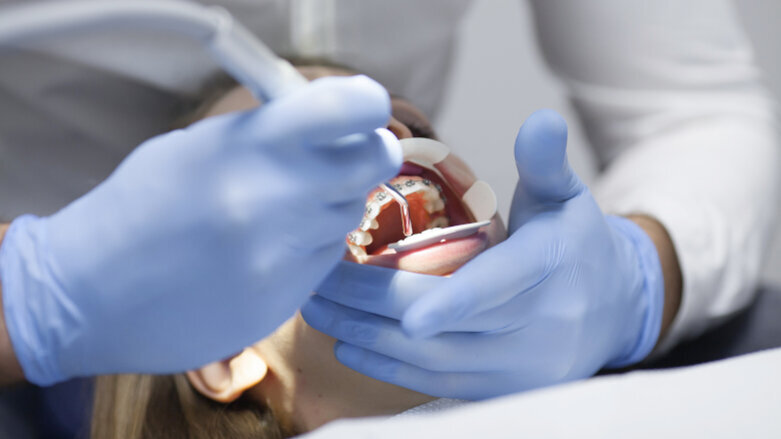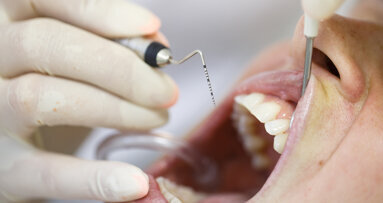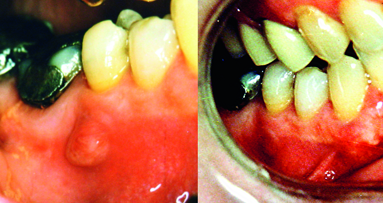ADELAIDE, Australia: Research carried out at the University of Adelaide has examined the relationship between previous orthodontic treatment and improved dental health benefits. Study participants who had undergone orthodontic treatment showed no difference in long‐term caries experience from those who had not, the researchers concluded.
The cohort study led by the University of Adelaide Dental School and the Australian Research Centre for Population Oral Health assessed data on long-term caries experience of 448 participants from Adelaide in South Australia. Using a questionnaire, the research recorded patients’ socio‐demographic characteristics, dental health behaviours and receipt of orthodontic treatment.
Dr Esma J. Doğramacı, lead author and lecturer in orthodontics at the university, stated that by the age of 30 more than one-third of the study participants had received some kind of orthodontic treatment.
“Patients often complain about their crooked teeth and want braces to make their teeth straight so they can avoid problems like decay in the future,” she said. However, while orthodontic treatment is supposed to improve oral function and aesthetic appearance, the results of the study showed no proof of improved dental health in participants who had been treated orthodontically in the past.
Additionally, there was no difference in the number of decayed teeth between those who had received orthodontic treatment and those who had not. Rather, greater caries incidence was strongly linked to brushing less than twice a day.
Based on the findings, Doğramacı concluded, “Evidence from the research clearly shows that people cannot avoid regularly brushing their teeth, good oral hygiene and regular dental check-ups to prevent decay in later life.”
The estimated cost of orthodontic treatment varies from approximately A$3,000 (€1,889) to A$13,000 (€8,189), according to the severity of malalignment. According to the school, the global orthodontic market is predicted to be valued at over US$6 billion (A$8,3 billion; €5,3 billion) by 2023.
The study, titled “The influence of orthodontic treatment on dental caries: An Australian cohort study”, was published online on 17 January 2019 in Community Dentistry and Oral Epidemiology ahead of inclusion in an issue.
Tags:
ZURICH, Switzerland: At a press event in Zurich on 15 February, Dr Roland Glauser, a Zurich-based expert in comprehensive implantology, highlighted ...
HELSINKI, Finland: The prevalence of adult periodontitis continues to pose a major global public health challenge, highlighting the need for evidence on the...
HELSINKI, Finland: Scientists have previously identified obesity and increasing age as risk factors for gestational diabetes mellitus (GDM). Some scholars ...
ADELAIDE, Australia: A new systematic review has reported that children with protruding primary or early permanent teeth have an increased chance of ...
AMMAN, Jordan: As artificial intelligence continues to expand its role in healthcare, large language models such as ChatGPT are increasingly being used to ...
ORADEA, Romania: Ongoing research continues to illuminate the plethora of ways in which oral and systemic health influence each other. While odontogenic ...
LONDON, UK: Though elite athletes generally possess an enviable level of physical fitness, a recent study has shown that their oral health may leave much to...
The aim of this study was to exam more than 8,000 primary, non-surgical root canal treatments in the author’s general practice during 1985–1999 ...
TARA, Australia: Many rural Australian towns lack resident dental services, leading to poorer oral health compared with urban areas. The National Oral ...
BILBAO, Spain: While the systemic health implications of neuropsychiatric disorders are well recognised, their connection to poor oral health—in ...
Live webinar
Tue. 24 February 2026
1:00 pm EST (New York)
Prof. Dr. Markus B. Hürzeler
Live webinar
Tue. 24 February 2026
3:00 pm EST (New York)
Prof. Dr. Marcel A. Wainwright DDS, PhD
Live webinar
Wed. 25 February 2026
11:00 am EST (New York)
Prof. Dr. Daniel Edelhoff
Live webinar
Wed. 25 February 2026
1:00 pm EST (New York)
Live webinar
Wed. 25 February 2026
8:00 pm EST (New York)
Live webinar
Tue. 3 March 2026
11:00 am EST (New York)
Dr. Omar Lugo Cirujano Maxilofacial
Live webinar
Tue. 3 March 2026
8:00 pm EST (New York)
Dr. Vasiliki Maseli DDS, MS, EdM



 Austria / Österreich
Austria / Österreich
 Bosnia and Herzegovina / Босна и Херцеговина
Bosnia and Herzegovina / Босна и Херцеговина
 Bulgaria / България
Bulgaria / България
 Croatia / Hrvatska
Croatia / Hrvatska
 Czech Republic & Slovakia / Česká republika & Slovensko
Czech Republic & Slovakia / Česká republika & Slovensko
 France / France
France / France
 Germany / Deutschland
Germany / Deutschland
 Greece / ΕΛΛΑΔΑ
Greece / ΕΛΛΑΔΑ
 Hungary / Hungary
Hungary / Hungary
 Italy / Italia
Italy / Italia
 Netherlands / Nederland
Netherlands / Nederland
 Nordic / Nordic
Nordic / Nordic
 Poland / Polska
Poland / Polska
 Portugal / Portugal
Portugal / Portugal
 Romania & Moldova / România & Moldova
Romania & Moldova / România & Moldova
 Slovenia / Slovenija
Slovenia / Slovenija
 Serbia & Montenegro / Србија и Црна Гора
Serbia & Montenegro / Србија и Црна Гора
 Spain / España
Spain / España
 Switzerland / Schweiz
Switzerland / Schweiz
 Turkey / Türkiye
Turkey / Türkiye
 UK & Ireland / UK & Ireland
UK & Ireland / UK & Ireland
 Brazil / Brasil
Brazil / Brasil
 Canada / Canada
Canada / Canada
 Latin America / Latinoamérica
Latin America / Latinoamérica
 USA / USA
USA / USA
 China / 中国
China / 中国
 India / भारत गणराज्य
India / भारत गणराज्य
 Pakistan / Pākistān
Pakistan / Pākistān
 Vietnam / Việt Nam
Vietnam / Việt Nam
 ASEAN / ASEAN
ASEAN / ASEAN
 Israel / מְדִינַת יִשְׂרָאֵל
Israel / מְדִינַת יִשְׂרָאֵל
 Algeria, Morocco & Tunisia / الجزائر والمغرب وتونس
Algeria, Morocco & Tunisia / الجزائر والمغرب وتونس
 Middle East / Middle East
Middle East / Middle East












































To post a reply please login or register